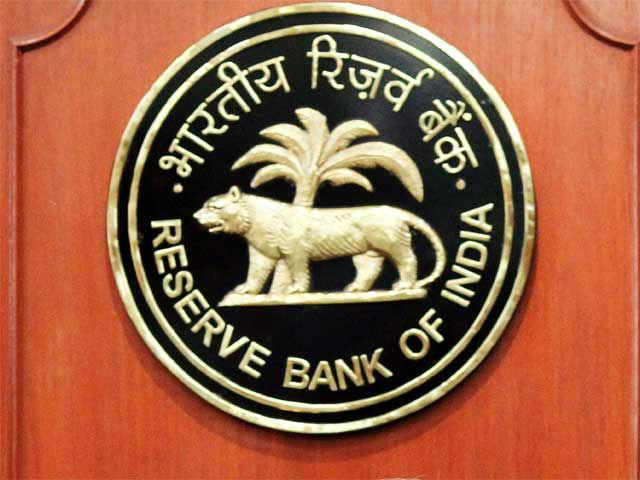The Reserve Bank of India constitute committees from time to time to review its existing guidelines and stay updated with international best practices. In this article we present you various committees formed by RBI:

Various Committees formed by RBI
- Economic Capital Framework (ECF) Committee
Reserve Bank of India has constituted the expert committee to review the Economic Capital Framework (ECF) to determine the appropriate levels of reserve the central bank should hold.
- Members: The committee shall consists of Dr. Bimal Jalan, Former Governor, Reserve Bank of India as chairman and Dr. Rakesh Mohan, Former Deputy Governor, Reserve Bank of India as Vice Chairman. The other members of the committee are Shri Bharat Doshi Director of Central Board, Reserve Bank of India, Shri Sudhir Mankad, Director from Central Board, Reserve Bank of India, Shri Subhash Chandra Garg, Secretary, Department of Economic Affairs, Ministry of Finance, Government of India and Shri N.S. Vishwanathan Deputy Governor, Reserve Bank of India
- Currently, the capital base of the RBI is Rs 9.69 lakh crore, and government wants it to be lowered in line with global practices.
- The Expert Committee will submit its report within a period of 90 days from the date of its first meeting.
- Task Force on Offshore Rupee Markets
The Task Force shall examine the issues relating to the offshore Rupee markets in depth and recommend appropriate policy measures that also factor in the requirement of ensuring the stability of the external value of the Rupee
- Chairperson of Task force: Smt. Usha Thorat, former Deputy Governor, Reserve Bank of India
- The Task Force shall submit its report by the end of June 2019
- Task Force on the Development of Secondary Market for Corporate Loans
The Reserve Bank of India has constituted a Task Force on the Development of Secondary Market for Corporate Loans
- Chairperson of Task Force: Shri T. N. Manoharan, Chairman, Canara Bank
- The Task Force shall submit its report by the end of August 2019.
- The Terms of Reference of the Task Force are to review the existing state of the market for loan sale/transfer in India as well as the international experience in loan trading and, to make recommendations on: required policy/regulatory interventions for facilitating development of secondary market in corporate loans, including loan transaction platform for stressed assets; creation of a loan contract registry to remove information asymmetries between buyers and sellers, its ownership structure and related protocols such as standardization of loan information, independent validation and data access; design of the market structure for loan sales/auctions, including online platforms and the related trading and transaction reporting infrastructure; need for, and role of, third party intermediaries, such as servicers, arrangers, market makers, etc.; appropriate measures for enhanced participation of buyers and sellers in loan sale/transfer
- Committee to Review the ATM Interchange Fee Structure
Reserve Bank of India has constituted a Committee to Review the ATM Interchange Fee Structure with a view to give a fillip to the ATM deployment in the unbanked areas
- Chairperson: Shri V. G. Kannan
- Terms of Reference of the Committee: To review the existing structures and patterns of costs, charges and interchange fees for ATM transactions; To review the overall patterns of usage of ATMs by cardholders and assess the impact, if any, on charges and interchange fees; To assess the entire gamut of costs in respect of the ATM ecosystem;To make recommendations on the optimal charge/interchange fee structure and pattern
- High Powered Committee on Urban Co-operative Banks
The Reserve Bank of India had constituted a High Powered Committee on Urban Co-operative Banks (UCB):
- Chairman: R Gandhi
- Recommendations:
- A UCB with business size of Rs 20,000 crore may be convert to a commercial bank
- Smaller UCBs may voluntarily be converted to Small Finance Banks
- The license to operate as UCB may be issued to financially sound and well-managed co-operative credit societies having a minimum track record of 5 years
Committees formed by Central Government
- N K Singh Committee
The N.K. Singh-headed FRBM (Fiscal Responsibility and Budget Management) Review Committee report had recommended the ratio to be 40% for the Centre and 20% for the States, respectively, by 2023. It said that the 60% consolidated Central and State debt limit was consistent with international best practices, and was an essential parameter to attract a better rating from the credit ratings agencies.
- High Level Committee (HLC) for implementation of Clause 6 of Assam Accord
It is headed by Shri M.P. Bezbarauah and includes eminent Assamese persons from different fields. The HLC has been constituted as per Clause 6 of the Memorandum of Settlement, known as the Assam Accord, signed on 15th August, 1985. Clause 6 of the Accord states that: “Constitutional, legislative and administrative safeguards, as may be appropriate, shall be provided to protect, preserve and promote the cultural, social, linguistic identity and heritage of the Assamese people.”
- Mohan Reddy Committee
All India Council for Technical Education (AICTE) has accepted the recommendations of the
committee headed by BVR Mohan Reddy. Important Recommendations are:
- No new engineering institutes should be allowed to set up from 2020
- Creation of new capacity in colleges should be reviewed every two years
- The current capacity utilization in traditional disciplines is just 40% as opposed to 60% seat occupancy in branches such as computer science and engineering, aerospace engineering and mechatronics
- To introduce undergraduate engineering programmes in emerging technologies like artificial intelligence, the blockchain, robotics, quantum computing, data sciences, cybersecurity, 3D printing, and design.
Click to go to RBI Grade B Preparation Page